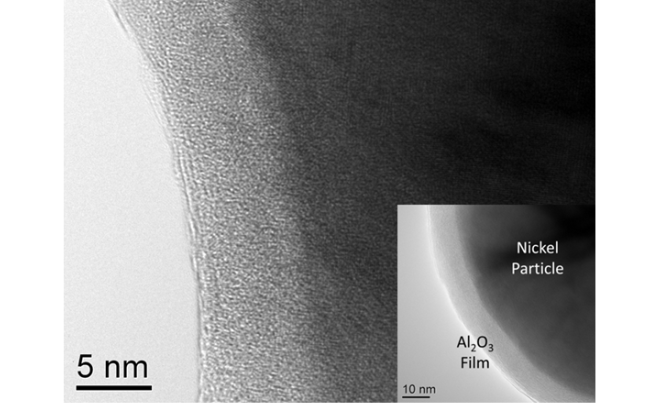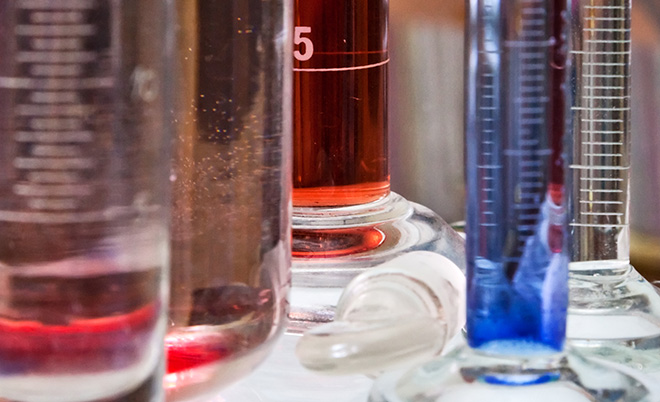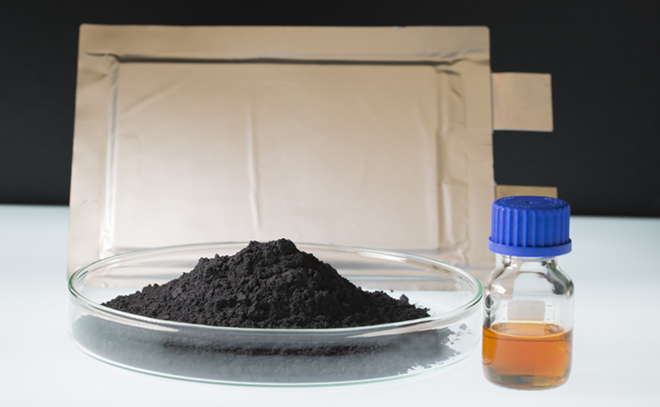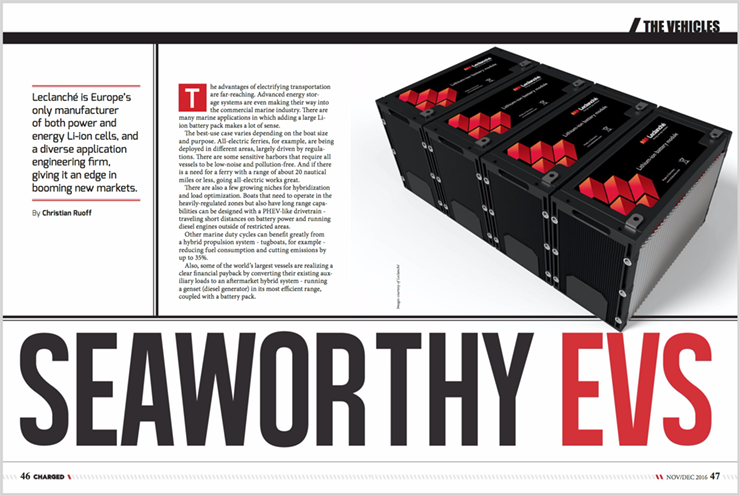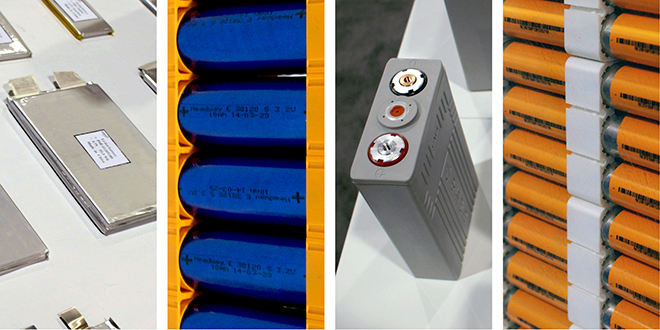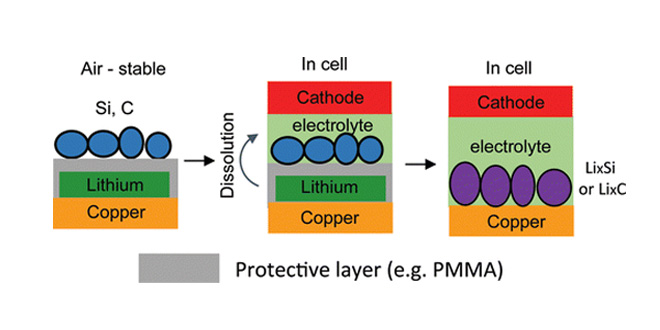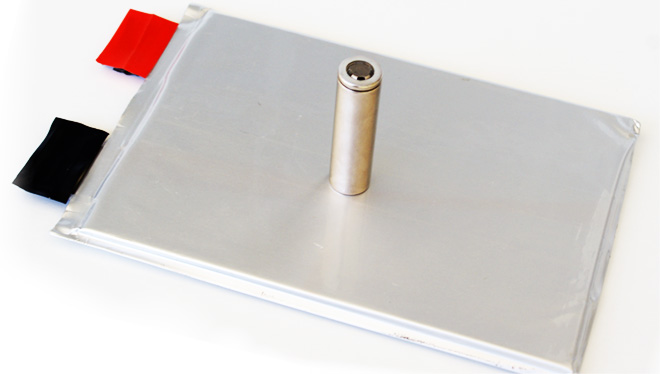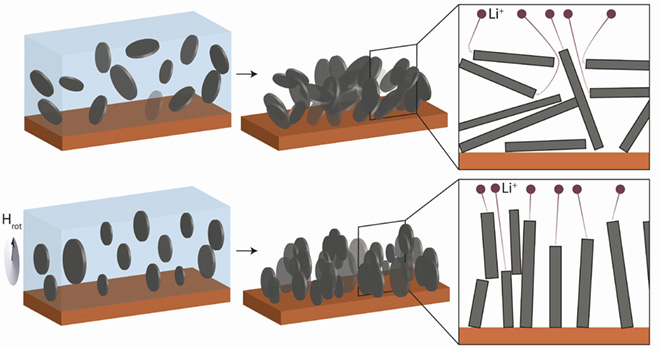Argonne National Laboratory has granted an exclusive license to Colorado-based nano-coating specialist Forge Nano to commercialize Argonne’s patented system for continuous atomic layer deposition. Atomic layer deposition (ALD) is a process that deposits a uniform, ultrathin encapsulating coating around any material. It can be used to upgrade materials such as powders utilized in lithium-ion batteries,… Read more »
Search Results Found For: "graphite"
New fluorinated sulfone electrolytes enable high-voltage, high-energy Li-ion batteries
Researchers at Argonne National Laboratory have synthesized a new class of fluorinated sulfone electrolytes to enable high-voltage, high-energy Li-ion batteries. In “Oxidatively Stable Fluorinated Sulfone Electrolytes for 5-V Lithium-ion Battery,” published in the RSC journal Energy & Environmental Science, Chi-Cheung Su and colleagues explain how they evaluated the physical and electrochemical properties of the new… Read more »
ECO COMBAT project aims to develop better and more sustainable batteries
Ten European industry and research organizations are partnering in the EU-funded project ECO COMBAT (Ecological Composites for High-Efficient Li-Ion Batteries), which aims to develop next-generation Li-ion batteries. Better performance is not the only goal for the new battery. The project also aims to develop a battery that’s more sustainable, by reducing the need for expensive… Read more »
Seaworthy EVs: Leclanché designs and manufactures Li-ion cells and systems
The advantages of electrifying transportation are far-reaching. Advanced energy storage systems are even making their way into the commercial marine industry. There are many marine applications in which adding a large Li-ion battery pack makes a lot of sense. The best-use case varies depending on the boat size and purpose. All-electric ferries, for example, are… Read more »
Saint Jean Carbon sets out to show that Li-ion materials can be recycled over and over again
Saint Jean Carbon, a carbon science company with interests in graphite and lithium mining, plans to join with a battery manufacturing partner to build a full-scale lithium-ion battery using recycled material from an EV power pack and upcycled anode material. The project aims to show that battery materials can be re-used over and over again,… Read more »
Leclanché and Narada Power form strategic alliance for Li-ion technology
Swiss battery manufacturer Leclanché and China-based battery manufacturer Zhejiang Narada Power Source have announced a strategic partnership to manufacture and develop lithium-ion battery technology for the Chinese and global markets. Narada aims to achieve low-cost, scale manufacturing of Leclanché’s proprietary high-cycling and fast-charging lithium titanate (LTO) and high-energy-density graphite nickel manganese cobalt (G-NMC) battery technologies…. Read more »
Researchers increase energy density by eliminating first-cycle capacity loss
In the quest to increase the energy density of Li-ion batteries, Yuan Yang, an Assistant Professor at Columbia Engineering, has developed a novel approach: reducing or eliminating capacity loss that occurs when a battery is first manufactured. In a paper recently published in Nano Letters, Yang and colleagues explain how this new method could improve… Read more »
Ethylene carbonate-free electrolytes promise less oxidation and better-performing Li-ion cells
A team led by celebrated battery boffin Professor Jeff Dahn at Dalhousie University has demonstrated that a common electrolyte additive is detrimental for Li-ion cells at high voltages, and suggest some alternatives. Dahn and his team discuss their latest work in two papers: “Enabling linear alkyl carbonate electrolytes for high voltage Li-ion cells,” published in… Read more »
Researchers make a major advance in silicon anodes
Current electrode materials such as graphite are able to stably adsorb only a limited number of lithium ions, an inconvenient truth that restricts capacity. That’s why researchers around the world are investigating semiconductor materials such as silicon as alternative electrodes. Bulk silicon is able to accommodate enormous quantities of lithium, but the migration of the… Read more »
Swiss researchers enhance Li-ion batteries with improved electrode design
Researchers at the Paul Scherrer Institute and ETH Zurich in Switzerland have developed a simple procedure that they say can enhance the performance of Li-ion batteries by improving the design of the electrodes without changing the underlying chemistry. In “Magnetically aligned graphite electrodes for high rate performance Li-ion batteries,” published in Nature Energy, Juliette Billaud… Read more »







